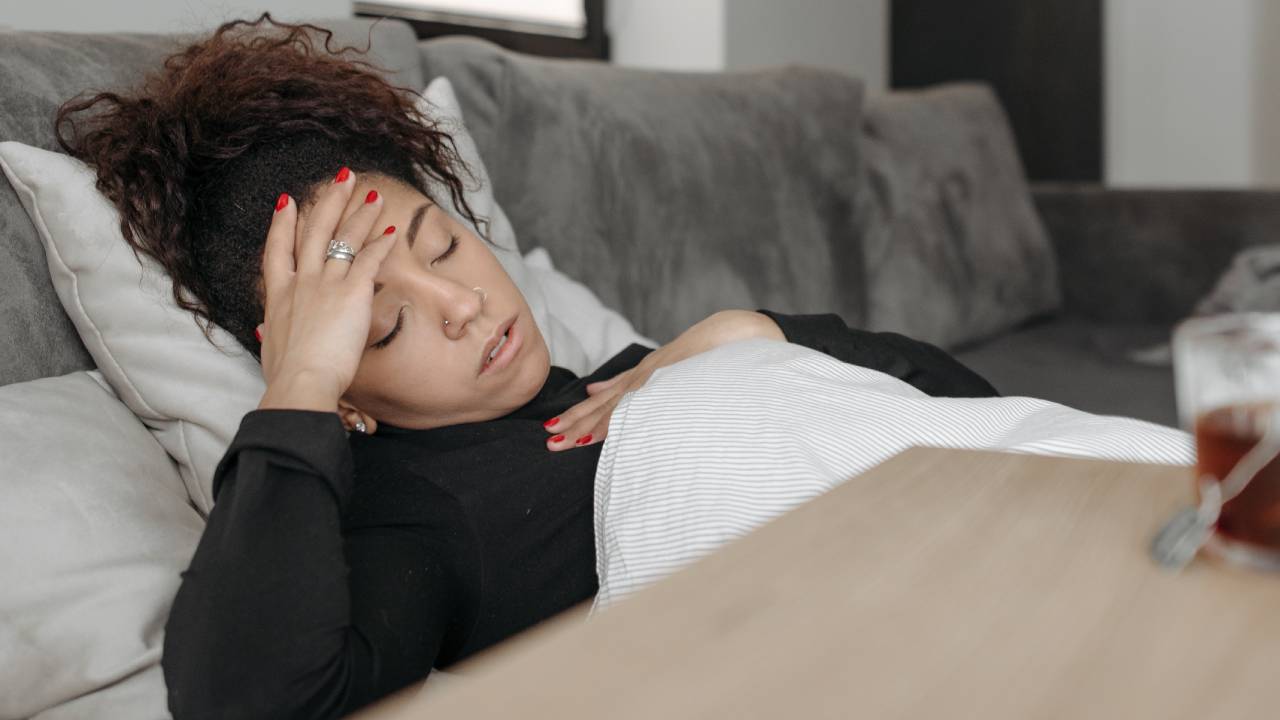5 reasons you sweat when you sleep & how to manage it
Night sweats: What they are & how you can stop them


Getting a good night’s sleep is incredibly important for your health and wellbeing. While there are many steps you can take to ensure you get the rest you need, including having the best mattress, going to bed at the same time every night and limiting blue light consumption, there are some things you can’t control as easily, like night sweats.
Whether you’re a naturally sweaty sleeper or experience night sweats occasionally, they’re not the most pleasant thing to deal with and they can have an effect on your sleep quality. Waking up feeling sweaty disrupts your sleep schedule and changing into fresh pyjamas and clean bed sheets is tedious, time consuming and makes it harder for you to fall back asleep.
Here’s 5 reasons why you might be experiencing night sweats and 4 ways to stop them ruining your sleep.
Why do you experience night sweats?
According to Mayo Clinic, night sweats are described as repeated episodes of heavy sweating during sleep that are often heavy enough to soak your bedding or clothing. While night sweats can be as simple as having too many blankets on you, they can be caused by an underlying illness.
At T3, we’re not medical professionals so if you’re concerned about night sweats, you should see a doctor. But after much research, we’ve found 5 reasons why you might be experiencing night sweats.
Poor temperature regulation
If you regularly find yourself feeling too hot or too cold, you might be poor at regulating your body temperature. There are many reasons why you might have bad temperature regulation, like being in a hot room and sleeping under too many duvets, or you could be experiencing hormonal changes or nutritional issues.
Get all the latest news, reviews, deals and buying guides on gorgeous tech, home and active products from the T3 experts
Overconsumption of caffeine & alcohol
Consuming alcohol, caffeine and spicy foods too close to bedtime can cause you to sweat excessively. These drinks and foods cause spikes in your body temperature and as alcohol and caffeine act as stimulants, they affect how your nervous system functions and can bring about increased activity, like too much sweating.

Medical conditions
Some prescriptions and medications can have night sweats as a side effect. Similarly, certain medical conditions like cancer, hypoglycemia, autoimmune disorders, hyperthyroidism and viral infections can also cause excessive sweating, according to Healthline.
Menopause & hormonal changes
One of the most common reasons for night sweats is menopause. Changes in your hormone levels (which are largely due to the fluctuating levels of estrogen and progesterone) bring about hot flashes and night sweats for women experiencing menopause. Pregnancy and menstrual cycles also affect body temperature, as well as low testosterone in men.
Stress
Night sweats can also be brought on if you’re feeling stressed, having anxiety problems or experiencing panic attacks. Typically with stress-induced night sweats, they might be accompanied by rapid breathing, elevated heart rate and trouble falling asleep.
How to stop sweating when you sleep
Night sweats can be hard to deal with but there are a few things you can do to avoid them and have a more comfortable and sweatless night sleep.
Consider your mattress & bedding
First, consider your mattress and bedding. Some mattresses tend to retain heat more than others by restricting air flow which causes you to sweat more. If you believe this to be the case with your mattress, you should look at replacing it or adding one of the best mattress toppers to your sleep set-up. When looking for a new mattress or topper, try to find one that has cooling properties like the DreamCloud Luxury Hybrid or the Simba Hybrid Topper.
Your bed sheets could also be making you sweat, as some bedding materials hold onto heat more than others. As we discovered in our guide on how to pick the right bedding for your sleep style, bamboo and silk bed sheets are best for hot sleepers as both materials are breathable, lightweight, cool to the touch and pull moisture away from the body to keep you cool through the night. Take a look at the best sheets for more picks.

Control the heating in your room
Sleeping in a hot bedroom can trigger night sweats so you should lower the temperature in your room before you hit the hay. The lower room temperature keeps heat from building up around you and will indicate to your body that it's time to cool down and relax, which can also help you fall asleep quicker.
Wear breathable clothing
To avoid night sweats and soaking your clothes, pick pyjamas that are breathable and lightweight. Wearing thick flannel pyjamas to bed when it’s warm outside is the worst thing you can do as the material traps heat. Tight fitting clothes also retain heat so choose clothing that’s loose fitting and airy.
Avoid alcohol, caffeine or heavy meals late at night
As mentioned above, alcohol and caffeine are stimulants that can cause you to sweat more at night. To stop this, avoid drinking alcohol or caffeine too late at night, typically within 2 hours before bedtime so you don’t mess up your sleep quality or quantity. Spicy or heavy meals can also make you sweat and give you heartburn, so you should have your last meal 3 hours before you turn in for the night. See 8 foods to eat for a good night’s sleep & 4 foods to avoid for more.
Drink cold water before bed
To help you regulate your temperature, drink a small amount of cold water before going to bed. Cold water makes it easier for your body to maintain a lower core temperature so you’re less likely to sweat excessively. Taking a cold shower before bed is also said to help with this, too.

Beth is Home Editor for T3, looking after style, living and wellness. From the comfiest mattresses to strange things you can cook in an air fryer, Beth covers sleep, smart home, coffee machines, watches, grooming tools, fragrances, gardening and more.
In her spare time, Beth enjoys running, reading, baking and attempting craft projects that will probably end in disaster!